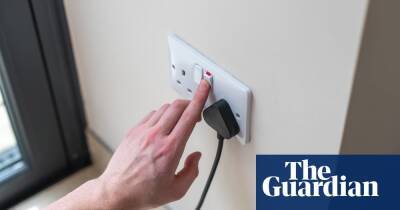Almost 90% of Debenhams stores still lie empty a year after collapse
Nearly 90% of former Debenhams stores remain empty almost a year after the department store closed its doors for the last time, in a sign of the challenge to reinvent high streets across the country.
The empty shops are among nearly 8,000 outlets left empty last year, according to a report by the high street analysts Local Data Company (LDC), as Covid lockdowns accelerated the shift towards shopping online and pummelled city centres.
However, that was down from 11,319 net closures in 2020, as fewer businesses fell into administration, while more than 43,000 new businesses opened, an increase of more than 10%.
Fast-food outlets, barbers, grocery stores, cafes and beauty salons were the fastest-growing sectors, as independent businesses took advantage of cheaper rents to launch.
There was also a significant bounce-back in the leisure industry, with a net 52 outlets closing compared with 2,640 a year earlier, as restrictions on dining out eased and takeaway businesses continued to boom. Clothing stores, banks, charity shops and pubs were hardest hit.
Lucy Stainton, the commercial director at LDC, said department stores were a particular problem, with only 12% of recently vacated sites now reoccupied, while just over a fifth of former BHS outlets remained empty five years after the department store collapsed as a result of the costs of fitting out and maintaining such large sites.
She said landlords and councils would have to think beyond retail to fill the space as there was a “knock-on impact” on the attractiveness of a town or shopping centre when key sites remained vacant.
Projects under way include the transformation of the former Debenhams in Gloucester into a student campus, while Manchester’s Kendals building, home to House
Read more on theguardian.com









![Analyzing Axie Infinity’s [AXS] case for the bulls and what to prepare for](https://finance-news.co/storage/thumbs_400/img/2022/4/15/21887_gmauz.jpg)








